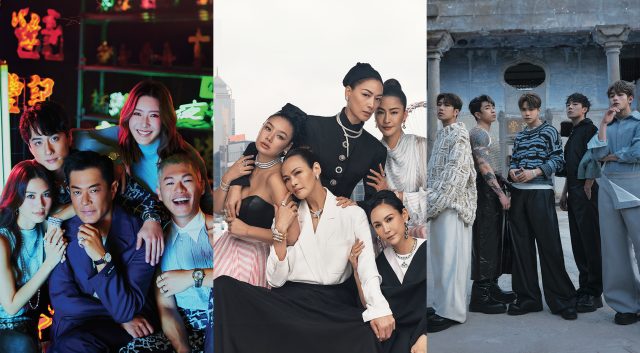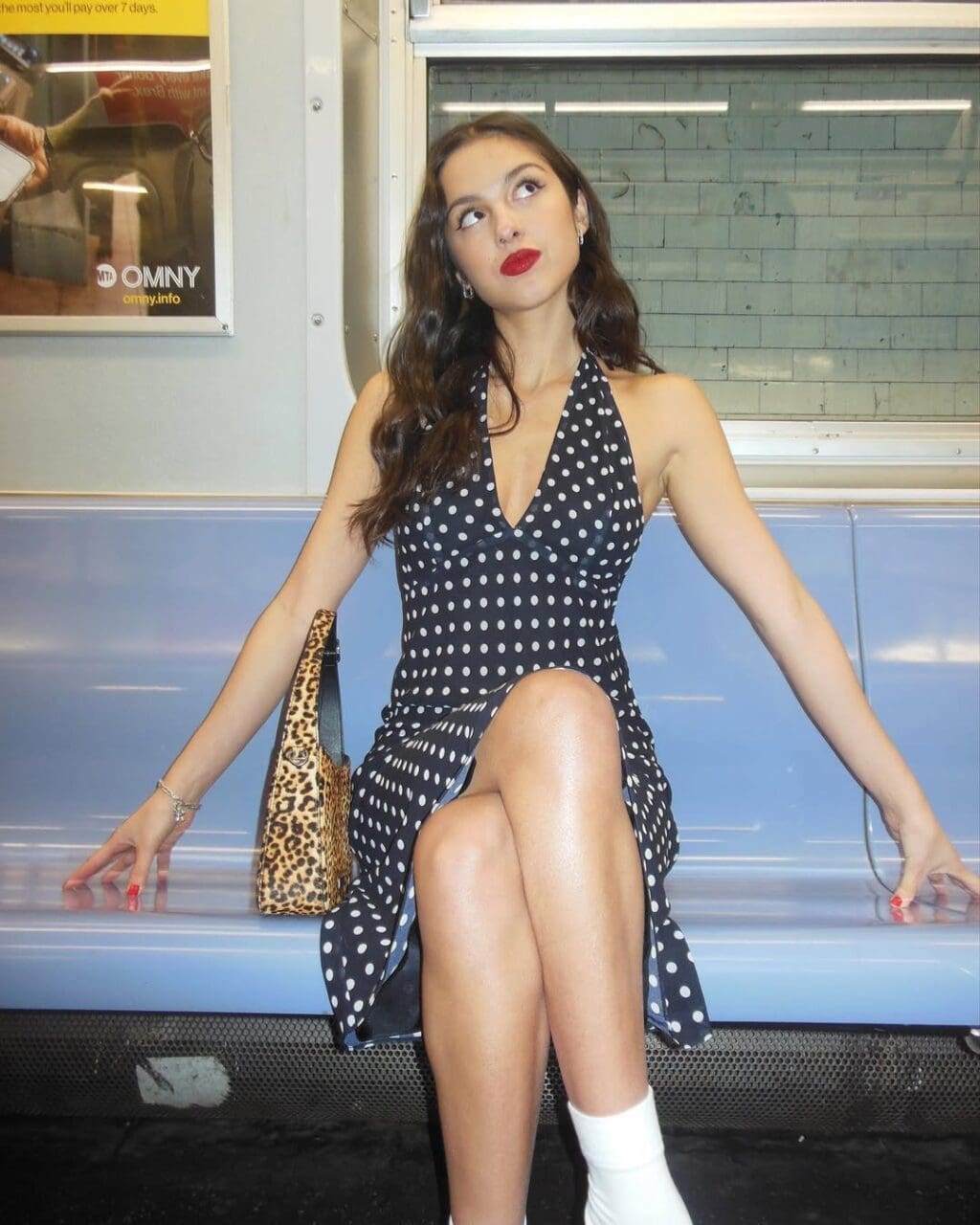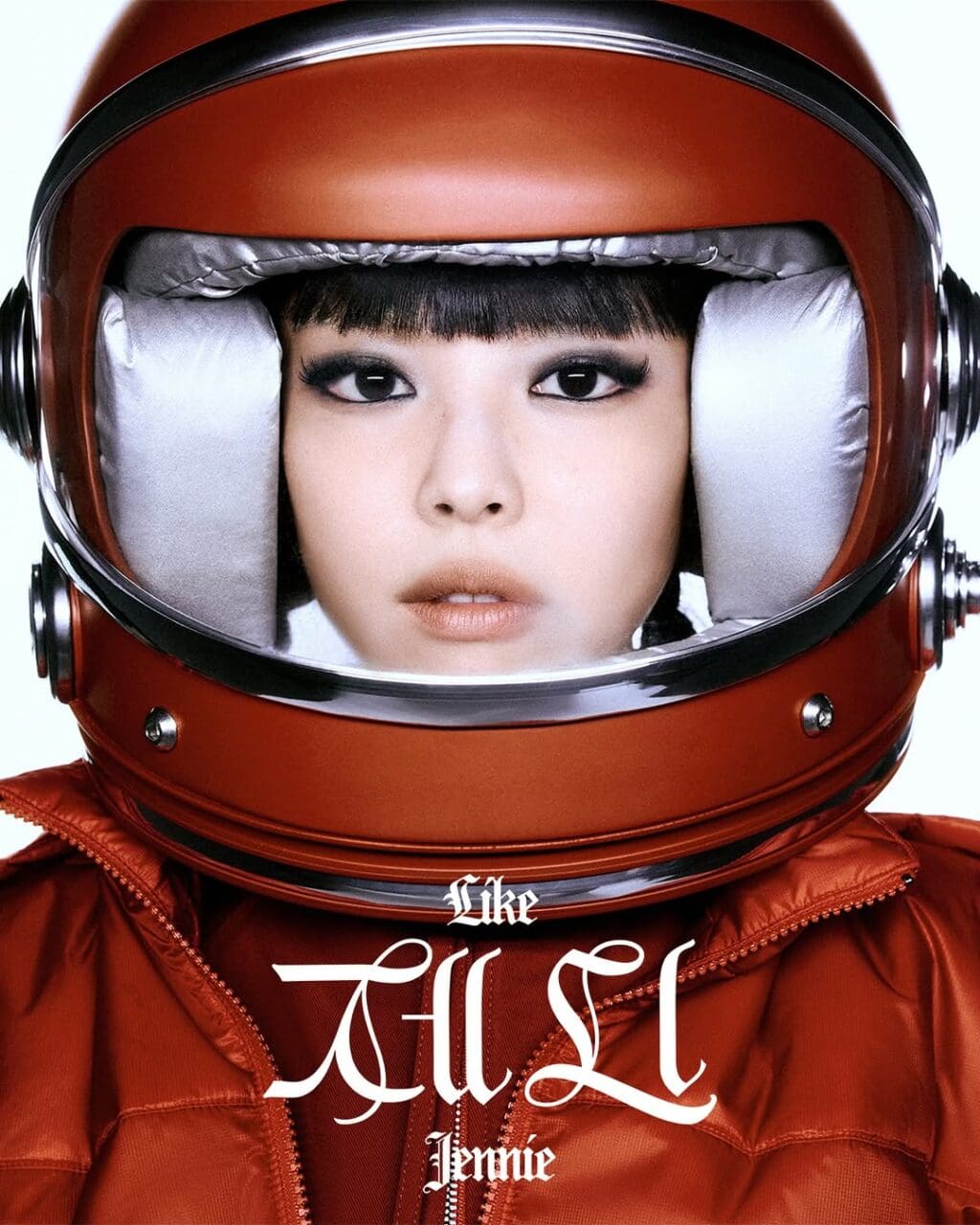Twenty years ago, Hins Cheung left his home of Guangzhou to find his footing in the diverse metropolis of Hong Kong. After decades of hard work, he now stands firmly in the city’s music scene. Cheung has given Hong Kong his love, deep understanding and respect, and in turn has become one of the city’s greatest prides whose songs have accompanied countless moments in our collective memories.
What do you think of today’s shoot location at Kong Ha Wai mansion?
I’m actually always looking at conservation projects. I love to travel and I think the most charming part of this city lies in its past. Like all of us, it’s our past that shapes our present selves. For this grade III historic building, landlords found that no one would object to it’s demolition, and it’s a valuable plot of land in the northern area too, yet they (Henderson Land Development) didn’t do it. For people like me who work in the culture, entertainment, arts and culture sphere, we value respect. We’ve got to maintain an attitude of humility and respect towards architecture, history and art. The new generation might have a more critical spirit, but I like to learn from history and old aesthetics.
You love history. What have you learned about Hong Kong’s architecture and traditional culture?
I’ve loved history since I was a kid, and was particularly interested in the ’20s to the ’50s. Actually Hong Kong and Guangzhou are quite similar — Hong Kong was once a colony and Guangzhou ceded land and had a lot of European architecture. But Hong Kong has a longer and richer East-meets-West history that gives rise to conflict and beauty. Think Sino-Western architecture and condensed milk on toast from cha chaan tengs… It’s hard to find a city like Hong Kong.
What does Hong Kong mean to you?
It’s family and my second home, but I spent a good deal of time cultivating this sense of home. I was still a secondary school student when I first stepped foot in Hong Kong in 1996. I remember walking past Central and Admiralty at night and seeing those lights that illuminated building walls shoot up towards the skies. When we reached the Peak Towers, I remember telling my Mom, “Seems like Hong Kong really never goes dark, the skies are still bright.” Turns out there really is an ever-bright place in this world. When I came to work here in 2002, I realised being a tourist differs drastically from living here. Going from an outsider to an insider, I also discovered the city’s good and bad. It took time to get used to the pace of work and little ways of life, everything required starting afresh.
When did you start to identify as a true Hong Konger and see Hong Kong as home?
Gaining recognition in the music industry rid those feelings of being an outsider. In terms of lifestyle, I adapted quickly. When I first came, a lot was different. I wasn’t so busy then and my agent would take me around to see the different faces of Hong Kong. So my feelings towards Hong Kong is a confirmation of my career. I developed a sense of belonging and sometimes just thought about coming back quickly when I was on business trips abroad. All in all, Hong Kong is the best and most convenient in all regards. I’ve been to the so-called ‘best’ city in the world, yet I still think Hong Kong has it all.
What do you like most about Hong Kong?
In most foreigners’ eyes, Hong Kong and Shanghai are very similar as they both experienced a heyday of splendour of indulgence. But, I think Hong Kong’s charm lies in its people. Cantonese people have a ‘stubbornness’ to them. We don’t like to sugarcoat and we are very straightforward. I like how blunt Hong Kong is compared to other Asian cities — if Hong Kong people like it then they like it, if they don’t then they don’t and I find comfort in that. In my opinion, the personality of the city is made by its people who simply do as they like.
Has there been a moment you found most important in your career?
In terms of my career, it would be my first time performing at the Hong Kong Coliseum. Before 2008, I travelled between the Pearl River Delta Region and Hong Kong. After 2008, I mainly stayed in Hong Kong because I thought holding a concert had its value and I should spend more time on it. Well in terms of my personal life, it would be when I obtained my ID card after living here for 10 years. I remember when the staff at the Immigration Department handed me my ID card and said I could go, I turned around and teared up. It was a turning point in my life — not because I had gone through a lot of hardship, but simply because it changed my life. I left a city behind and an identity I’ve had since childhood to live in a brand new city. And suddenly, I found that life had changed, and so has my relationship with ‘my’ city. I remember this moment so well.
What impact do you think your music has on people and the world?
I don’t know. I don’t think I’m a pioneer, trend leader, nor trailblazer of a generation. I hope I’m a companion. I think that’s my value. I hope my songs, performance and existence can offer people company in life and music.
What do you think about the evolution of Hong Kong’s music culture in the past 20 years?
It has changed and it hasn’t. The music that Tyson, Terrence, Jeffery and Ka Ho make has reinvigorated this new generation of Hong Kong music. Hong Kong has always needed its own essence detached from external influences. Cantonese songs’ most important quality is its ability to move people. To make music in Hong Kong is to look outwards, but at the same time it requires an understanding of people’s lives so that whatever is created ties back to them.
What does Hong Kong spirit mean to you? How does one carry it forward?
I think Hong Kong people’s tenacity is rarely found in other Chinese areas or cities. I think it has something to do with our fishing culture, that feeling of “It is what it is, we’ve got to keep moving anyway, so let’s”. So generations of Hong Kong people continue to stay in this city. The second thing is our adaptability and quick flexibility.
What message do you want to share with Hong Kong people?
These days, especially now that the pandemic is over, I feel like this place needs more love and not just money. With money this building can be demolished, but more so it deserves our love… Stay and give more love to this place.
Translated by Karrie Lam
Photography: Hong Jang Hyun
Fashion Director: Jonathan Yee
On-Set Stylist: Constance Lee
Makeup Artist: Cyrus Lee
Hair Stylist: Ritz Lam
Creative Producer: Marina Fairfax
Executive Producer: Second Li
Artist & Creative communication: Lee Kyung Kim @ BL Creative House
Senior Fashion Editor: Kyle Tang
Production Manager: Jacky Liu
Fashion Assistants: Mama Yiu & Naoki Li
Editor
Fung Hiu Kwan





